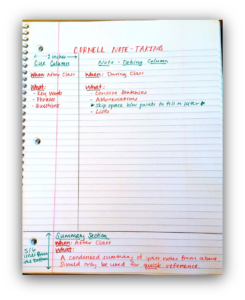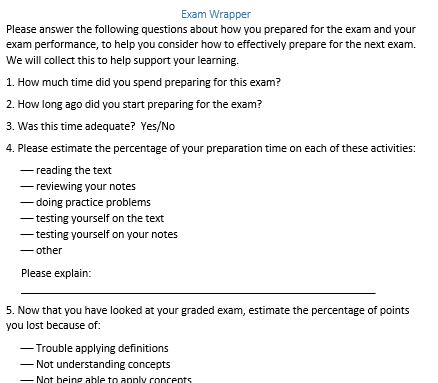‘It ain’t what you do, it’s the way that you do it
‘t ain’t what you do, it’s the way that you do it
‘t ain’t what you do, it’s the way that you do it
And that’s what gets results’Ella Fitzgerald
The COVID-19 pandemic lockdown has ushered in an independent learning experiment bigger than any in our lifetime.
Debate has naturally attended the pros and cons of remote learning, but too little on the challenges that attend independent study. We are asking questions like: are ‘live lessons’ superior, or can recorded lessons get the job done? I worry that debating the medium, and ‘what you do’, ignores the vital qualifier of the ‘way that you do it‘.
Whether it is live or recorded lessons, or another method, we should attend how we support, scaffold and model effective study strategies for students. We know that even university students can flail and fail when it comes to studying effectively. Why should school students be any different?
Helpfully, there are lots of insights we can glean from research on study, revision, homework, and more. Here are five such strategies:

- Cornell note-making.
The essential principle of this note-making strategy is that the writing about what you read (or a video explanation you are watching) is effective in helping consolidate and develop your understanding.
The Cornell method is particularly useful as it suggests the identification of key vocabulary, reflection questions and summary statements for note-taking. These allow for a more effective approach to restudying notes and likely improves on existing note-making habits (research on US university students is interesting here). It is unlikely to be enough to simply make notes and expect a quick-re-read ensures deep understanding.
2. Single sentence summaries
Summarisation is an important way to consolidate and comprehend what has been read. Research indicates it is helpful but it requires training on how to do it to be really effective (especially for younger students). It can be helpful to offer some framing sentences and to clearly model effective summary sentences e.g.
- A ………………. is a type of ……..….. that ……………….. [classification]
- The …………that ………….….. reveals [classification]
- …………… first begins with …………., before then……… [sequence]
- ……………. and ………… are similar because……… [compare & contrast]
- …………….. caused a significant……………… [causation]
3. ‘Just a minute’
A perennial favourite teaching strategy of mine, ‘Just a Minute’ is a quick approach to get students to explain their thinking on a given topic. If you can talk cogently – for even a minute – on a topic such a ‘familial love in Romeo and Juliet’, it can be both a show understanding on the given topic, but also consolidate that understanding. It is founded on the well-researched principle of ‘self-explanation‘. This is often done in writing (see the first two strategies), but ‘Just a Minute’ is a way to foster self-explanation verbally.
4. Task wrappers
Labelled ‘task wrappers’, ‘exam wrappers’, or ‘metacognitive wrappers’, this approach gets students to monitor how well they actually studied for an upcoming task or exam (see examples here). How long a student has studied, along with what strategies they used, is important information for their teacher. This approach could lead to students better steering their own study (more research needs to be done in this area).

5. Flashcards
The old, trusty flashcard is a staple of students’ study strategies. Done well, they can lead to effective self-testing. However, research indicates that even by university, many students don’t recognise they can be an effective study strategy. Not only that, they can drop flashcards too early in their independent study. Clearly, explicit training in the making and use of flashcards is required.
What is consistent with effective study strategies is that we make no assumptions that they will be used well. Effective ‘independent learning’ doesn’t just appear on the back of teaching great live or recorded lessons – it requires additional modelling, scaffolding and monitoring.
When it comes to independent study, it is about what you do and the way that you do it.






Comments